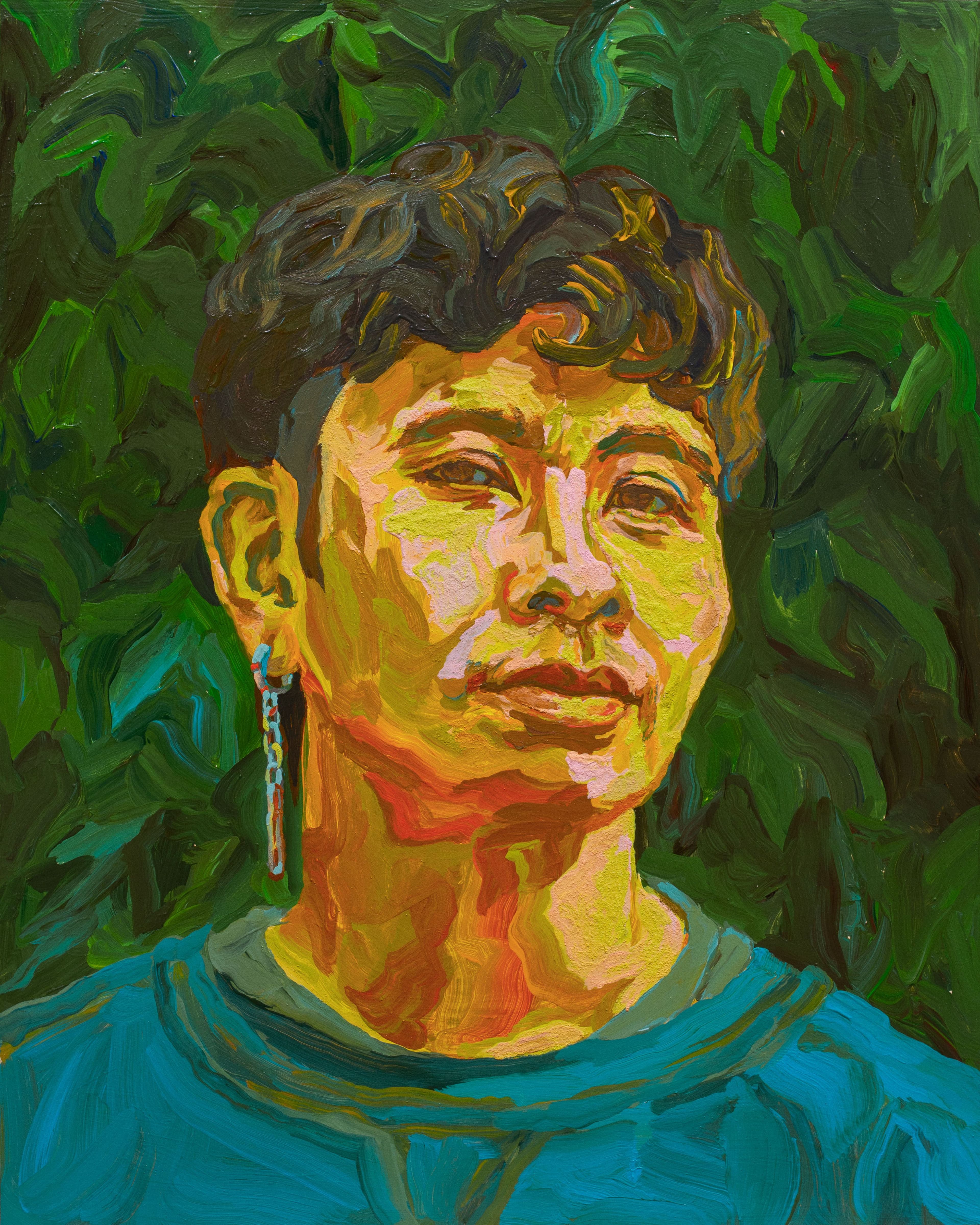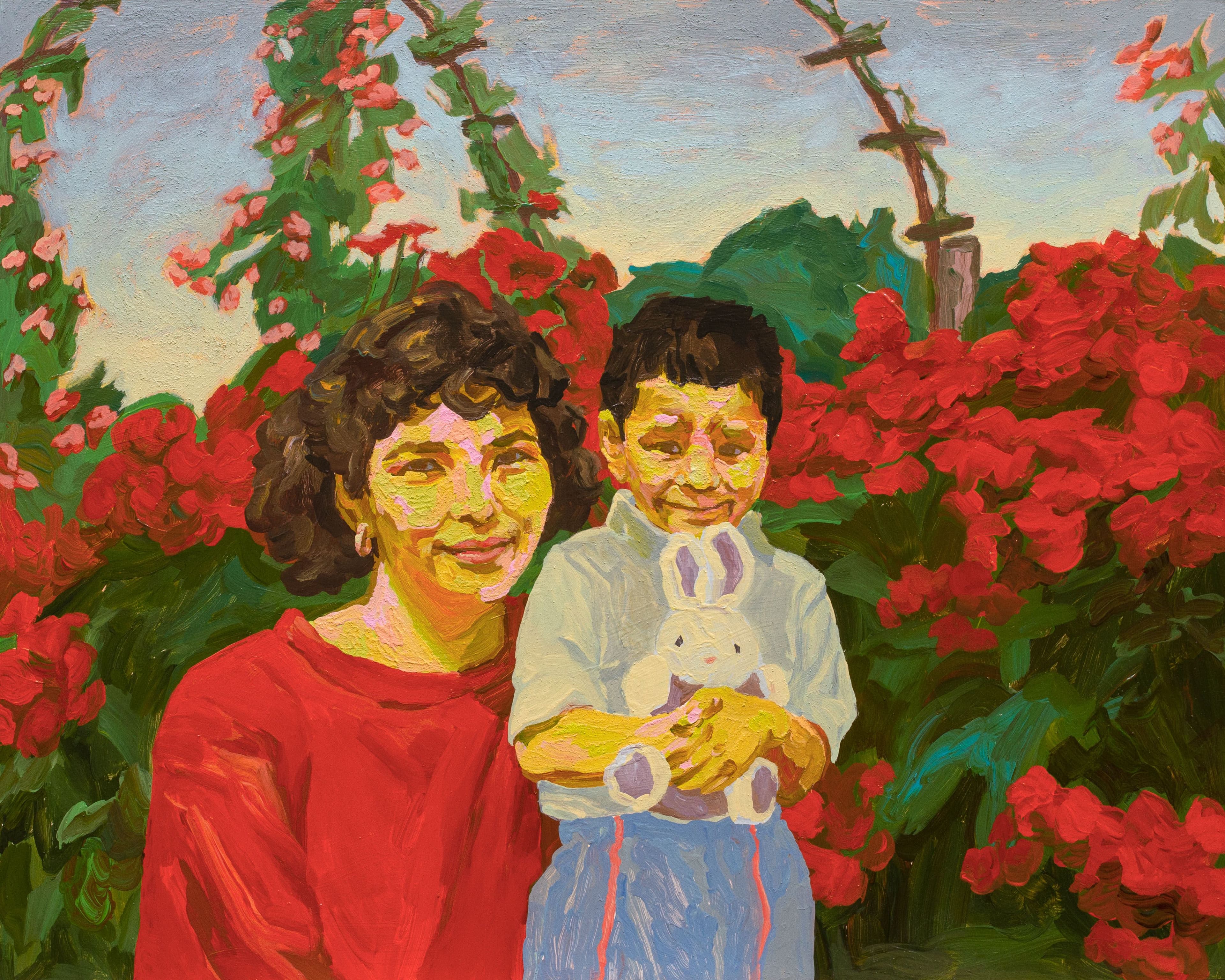
Ocean Vuong Moves On
It will come as no surprise that the author Ocean Vuong has a talent for finding the perfect metaphor. When you write a book, he says, you are building a town square: the large-scale planning of dimensions and scope, the exacting selection of materials, the intricate process of construction, the meticulous placement of final details. Then, when it’s complete, all that’s left to do is to welcome in the public, at which point it becomes something for the community at large to inhabit and imbue with a life of its own, out of the hands of its creator.
That is exactly what Vuong has done with Time Is a Mother, his new collection of twenty-seven poems, which was released in April to widespread acclaim. After the success of his 2019 debut novel On Earth We’re Briefly Gorgeous, Vuong has joined rarefied air for an author, and especially a poet. He has appeared on Late Night with Seth Meyers, had his work serve as a plot point in Luca Guadagnino’s series We Are Who We Are, and been referred to by Andrew Garfield as “my future wife“ (thanks to his soft voice, which misled Garfield into thinking Vuong was a woman after hearing him speak on a podcast). His writing, which evokes a broad range of intense emotions with sharp precision, has also earned him a passionate audience of readers who have greeted his new book with deserved adoration, moving into the town square he has built and making themselves at home.
The semi-autobiographical On Earth We’re Briefly Gorgeous is an epistolary novel, written as a letter from a queer Vietnamese son to his illiterate mother, a nail technician who raised him in public housing in Hartford, Connecticut, after the family fled Saigon as refugees, all of which is true about Vuong and his mother as well. The book is viscerally honest in its depiction of their relationship, of both the joyous freedom to be found in tender moments and the heavy burden of familial expectations and obligations. As the novel’s publication date neared, Vuong’s mother was diagnosed with terminal breast cancer, which by that point had spread to her bones. Time Is a Mother was written largely in the wake of her death, during 2020’s lockdown when Vuong was seeking a form of release. “I felt like a child—your mother’s gone, you feel helpless—so I went back to the art that gave me the most joy, which is poetry,“ he says. “The hardest task of a novelist is management, and management is the furthest away from my identity as a person. As a poet, it’s just the drug, it’s just a good line in the veins, and then you go on to the next. It was much more pleasurable and I just wanted to go back there because I was so genuinely sad. Every day my mother’s emptiness just got amplified, and then about six months into it, I said, ’Oh my god, I have enough for a book.’“
He read through the poems looking for themes and realized that “it’s all grief but also joy,“ he recalls. Mourning the death of his mother, Vuong found himself in an America that, thanks to the pandemic and its myriad attendant losses, was confronted with grief on a national scale rarely experienced before. He rejects the idea that the act of writing helped him “work through“ or “process“ his emotions but notes that he finds solace in the possibility that the result might be helpful to others. “There is a satisfaction in building an architecture in which the feelings could be shared amongst people,“ he says. “For me, I don’t think it’s genuine healing, but there is something beautiful about making something that is exact enough to how you felt it that someone else could read it and say, ’Oh my god, that’s how I felt as well.’ There’s a pleasure to that, but I don’t know if it’s like, ’Oh, I’m over it.’ It’s a wound that I think will never heal.“
While compiling the poems that would become Time Is a Mother, Vuong says he was also struck by the humor that ran through them, as well as a newfound sense of liberation. “There was more of myself and I think it was because my mother was gone,“ he says. “You tell yourself that you write whatever you want, you’re an artiste, but I didn’t realize how much I was beholden to a career until my mother died. I was afraid to get it wrong, I was still so conservative with my work, even though I didn’t tell myself I was. I realized so much of it was to take care of her, so I ended up being more conservative with my thinking.“ Released from the responsibility of chasing success to provide for his mother, he was finally able to be fully himself. “I’m proud of all my books, but it’s the book where I feel the most complete,“ he adds. “Everything is there.“

Having moved from Vietnam to Connecticut at the age of two, there was little indication while Vuong was growing up that poetry was in his future. He struggled to read until he was eleven, had mediocre grades at times during high school, and originally enrolled in college to study marketing. But after he graduated from Brooklyn College with a degree in English, his first poetry collection, 2016’s Night Sky with Exit Wounds, established him as a distinctive new voice and went on to win the T.S. Eliot Prize for Poetry. After the release of Briefly Gorgeous, he was awarded a MacArthur “Genius“ Grant and now serves as a professor in NYU’s poetry MFA program. With the publication of Time Is a Mother, Vuong says that he is ready for something new. “I don’t know how many poems I have. It almost feels like a death when I say I’m really happy with this book,“ he says. “The other side of that coin is that I think there’s a sort of death of innovation when you’re as satisfied as I am now, at thirty-three. I hope not, but to be honest, I don’t see poetry in my future for a very long time.“
Having published thirty-five poems in Night Sky and twenty-seven more in Time Is a Mother, Vuong admits that he is starting to feel the strain of creating a new premise for each one. A novel, he points out, may contain perhaps only three premises, explored at great depth, “deeply thought out, deeply enmeshed.“ What’s next for him will be reconsidering these existing premises in new forms, much as he did with “Dear Rose,“ the centerpiece of Time Is a Mother, which he wrote in between drafts of Briefly Gorgeous and takes its framing from that novel. “I would be really lucky if I have one more collection from now until if I get to live to sixty or seventy,“ he says. “I would be happy with one more, but I’m already limited. I went from thirty-five to twenty-seven, it’s like I’m already seeing the end of this. I’m more interested in revisiting those premises by going deeper with novels or film scripts, which is something I’m learning how to write.“
In fact, Vuong recently completed his first script, an adaptation of Briefly Gorgeous for the studio A24, an experience that allowed him to revel in the “white-belt mentality“ he says he tries to bring to all his work. In the process, he estimates that he added forty percent new material, joking that strict adherence to the original would have resulted in a “bad two-hour music video,“ given its fragmentary form. He immersed himself in the concept of cliché, celebrating its emotional capacity while pushing to expand the architecture contained within. “I think that’s why I’m interested in working on the film. It’s just kind of toeing that line between something so familiar and then making it strange,“ he explains. “I think that’s what queerness is, right? When I was a teenager watching the heteronormative, masculine boys in New England that I grew up with, I saw them in ways that their mothers and fathers never even thought. And I said, ’Oh wait a minute, there are multiple angles to one thing.’“ This realization has shaped his approach to his work ever since. “Storytelling is about making sure you keep making that step, like you’re in a museum at a sculpture—make sure you keep taking that little step,“ he continues. “It’s not even just covering the circle, the light might change on a different day that reveals something else. It’s not even just about you, it’s about the world around you and you can look at something inexhaustibly. I think so far, my career has been putting the same obsessions into different forms and so far, they’ve always come up with new dimensions.“
With a novel and two poetry collections out and his first script finished, Vuong is at a turning point of sorts in his career. As the film adaptation of Briefly Gorgeous moves into the production stage, he says he plans to begin work on an original script one day. “There’s so many things that the visual element can do that fiction can’t, and I just want all the tools,“ he says. “I think at the heart of my work, I’m just a storyteller and the more tools there are to tell a story, including sound and music, why not?“
As he reflects on his work thus far and looks forward to applying his talents in new ways, Vuong appears to have reached a certain personal equilibrium as well. “I’ve always admired Toni Morrison. When someone would ask her, ’Why do you write?’ she said something so refreshing and so simple that I’ve always aspired to feel: ’Because I’m good at it!’“ he laughs. “For the first time in my career, I can, because I didn’t ever want to say that without feeling it. For the first time, I genuinely feel that. I write because it’s the one thing that I’m good at. It’s not about being the best or what have you, but compared to other things in my life, I can fucking write a sentence. If nothing else, I can do that. I think that gives me enough joy to keep doing it for now, and I just want to find different ways to do that.“
Time Is a Mother is out now. See this story and many more in print by ordering CERO04 here.
As a nonprofit arts and culture publication dedicated to educating, inspiring, and uplifting creatives, Cero Magazine depends on your donations to create stories like these. Please support our work here.
As a nonprofit arts and culture publication dedicated to educating, inspiring, and uplifting creatives, Cero Magazine depends on your donations to create stories like these. Please support our work here.






